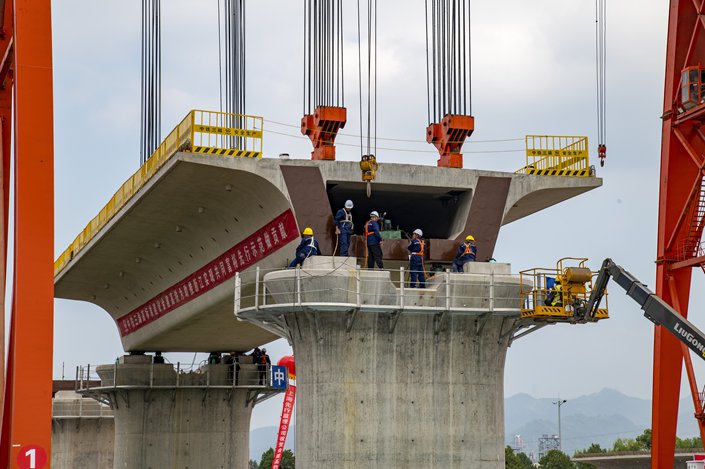Yu Yongding: Can China Stabilize Its Economy Without Increasing Central Government Debt?

When effective demand weakens, a government often looks to boost infrastructure investment to drive economic growth. The core of China’s expansionary fiscal policy is having local governments, and enterprises, especially state-owned ones, increase infrastructure investment.
However, a successful implementation of infrastructure investment and its effectiveness in stimulating China’s economic growth are subject to external conditions such as Covid-19 restrictions, and whether certain operational problems can be solved. Two major problems lie in the financing structure of infrastructure investment and the use of local governments’ special-purpose bonds (SPBs).

Yu Yongding, a former president of the China Society of World Economics and director of the Institute of World Economics and Politics at the Chinese Academy of Social Sciences, served on the Monetary Policy Committee of the People’s Bank of China from 2004 to 2006.
- 1Cover Story: China Carves Out a Narrow Path for Offshore Asset Tokenization
- 2Drownings Shake Chinese Enthusiasm for Travel to Russia
- 3Over Half of China’s Provinces Cut Revenue Targets
- 4Li Ka-Shing’s Port Empire Hit by Forced Takeover Amid Panama Legal Dispute
- 5In Depth: China’s Mutual Fund Industry Faces Overhaul After a Banner 2025
- 1Power To The People: Pintec Serves A Booming Consumer Class
- 2Largest hotel group in Europe accepts UnionPay
- 3UnionPay mobile QuickPass debuts in Hong Kong
- 4UnionPay International launches premium catering privilege U Dining Collection
- 5UnionPay International’s U Plan has covered over 1600 stores overseas





